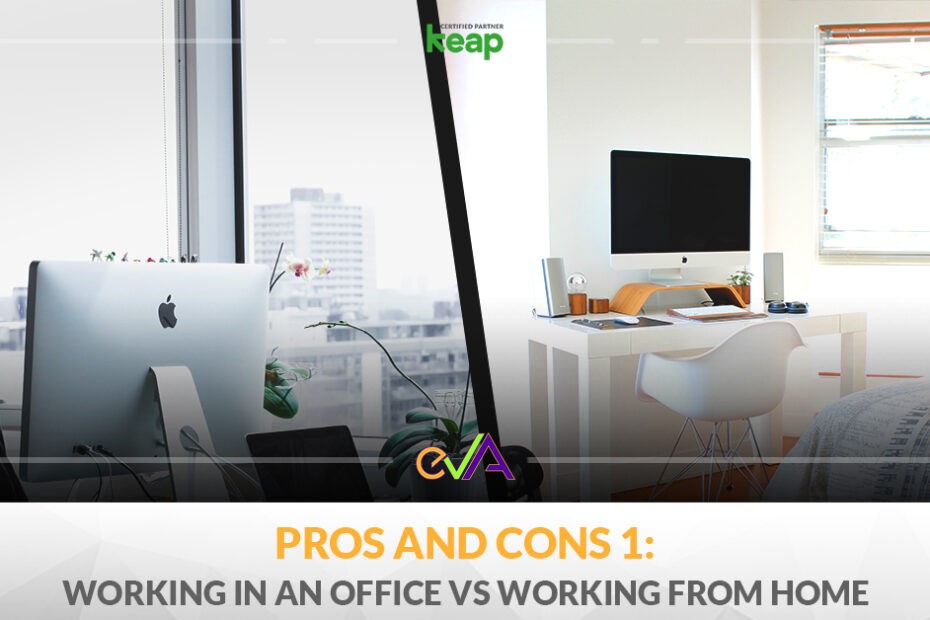What are the advantages and disadvantages of working from home vs. working in an office? Let’s evaluate them side by side to see what they can offer in benefits and drawbacks. According to Owl Labs research, around half of employees work from home at least once a week, while others have full-time remote jobs. Due to the COVID-19 epidemic, several companies have switched their tools and processes for remote teams for the first time, a significant change for both employees and businesses.
Commuting

The average American worker spends at least 27 minutes commuting to work each day, and the problem is growing worse. According to NPR, “more than 14 million individuals spend an hour or more driving to work.”
By becoming a telecommuter, you may save a significant amount of time. Working remotely or from home while utilizing the internet, email, and the phone is referred to as telecommuting.
By becoming a telecommuter, you may save a significant amount of time. Working remotely or from home while utilizing the internet, email, and the phone is referred to as telecommuting.
While some people still love traveling and prefer a separation of home and business, others have a different opinion. People would rather spend more time with their families or pursue their interests than traffic complaints.
Work-life balance continues to rise in relevance among today’s workforce. As a result, if given the option, individuals would choose to avoid the rush hour travel and work from the comfort of their own homes.
Communication

Face-to-face contact is the most favored communication mode for employees, according to findings from our 2020 State of Business Communication Report.
Face-to-face communication, except for video conferencing, is something that can only be had in an office setting. It not only helps with business planning but also improves connections and rapport with coworkers. When you sit next to someone or run into each other at the coffee shop, there’s something about relationship-building that happens.
When you operate remotely, communication is still possible; it’s just different. Video calls replace face-to-face communication. Slack messages are created from short chats. Emails, on the other hand, remain emails.
Working from home has the advantage of allowing you to work from anywhere. You don’t even need a laptop to get started. Employees may use their iPhone or Android to make and receive calls, attend conference calls, message colleagues, and remain online with a full-featured business phone app.
Many businesses now require video conferencing over regular phone conversations when talking with coworkers to improve communication for remote staff. To align themselves with company goals, teams should hold conference calls. Employees may also arrange online gaming evenings for fun to get to know one another outside of the office.
Flexibility

When you work from an office, you probably have a regular schedule. Every day, your alarm goes off at the same time, you have your morning coffee at 7:05 a.m., and you’re at your desk ready to work by 9 a.m.
It’s a little different when it comes to working from home. You may now pick when you want to get up and how you want to spend your day. If your firm is new to remote work, all employees will likely continue to work typical 9-to-5 hours. With remote work, you can now sleep in (a bit), choose a lunchtime, and close your laptop whenever you want — for some, that’s 4 p.m., for others, it’s 7 p.m.
Working hours will vary to accommodate the employee’s schedule as more firms embrace a remote-first strategy. This change gives you greater freedom in terms of when you start and conclude your day, as well as where you work. You should be able to operate from any location with a reliable internet connection!
When working from home, many employees find it difficult to unplug. When working remotely, up to a third of employees feel it’s difficult to strike a balance between work and family life. When you’re at work, it’s simple to turn off your computer when you see your coworkers begin to leave for the night, but when you’re at home, those indications are absent.
Another significant advantage of working from home is the ability to freelance and take on side jobs. You might use the time you spend commuting to work on side projects or freelancing. It’s a lot more profitable than waiting in traffic!
Which is which?
There are many pros and cons when it comes to working from home versus working in an office.
Some people are more comfortable in an office setting, while others prefer to work from home. Recently more people have been facing the choice of working from home as opposed to working from their office.

eVA Outsourcing provides quality services and offers effective strategies that can
help businesses succeed. We always aim to exceed our clients’
expectations. Embark a new journey with us!
Ready to Boost Your Productivity?
Contact us now or Book a free discovery call to see how we can support your business goals!



